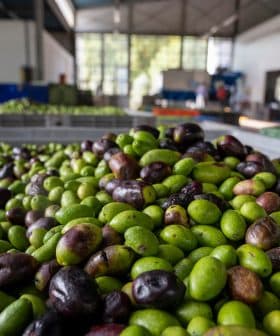Mediterranean Diet May Help Protect Newborns from Leading Cause of Mortality, Study Suggests

A new study suggests that following a Mediterranean diet during pregnancy may reduce the risk of Small for Gestational Age (SGA) in newborns, with results showing a significant decrease in SGA births compared to control groups. The study, conducted on over 1,200 pregnant women, highlights the potential benefits of the Mediterranean diet and mindfulness-based stress reduction techniques for improving maternal and newborn health outcomes.
According to a new study, following a Mediterranean diet might help curtail one of the most common health problems affecting newborns.
Small for Gestational Age (SGA) is a condition that affects 27 percent of all births globally and can lead to breathing and oxygenation problems for newborns and further health problems as they become adults.
The new research published in the Journal of the American Medical Association focused on the effects of following the Mediterranean diet and the adoption of mindfulness-based stress reduction techniques on pregnant women. Both were compared to usual care.
See Also:Health NewsResearchers analyzed a sample of more than 1,200 women with singleton pregnancies at high SGA risk. Scientists working in the Hospital Clínic de Barcelona divided the sample into three groups.
The first one – focused on the Mediterranean diet – received two hours monthly of individual and group educational sessions. Those participants were also given supplements of extra virgin olive oil and walnuts.
The second group worked with stress reduction techniques for eight weeks, while the third group was cared for according to the existing institutional protocols.
“The primary endpoint was the percentage of newborns who were SGA at delivery, defined as birth weight below the 10th percentile,” wrote the researchers.
“The secondary endpoint was a composite adverse perinatal outcome (at least one of the following: preterm birth, preeclampsia, perinatal mortality, severe SGA, neonatal acidosis, low Apgar score or presence of any major neonatal morbidity),” they added.
Of the 1,184 women who completed the trial, 88 newborns from the control group were afflicted with SGA. In the Mediterranean diet group, this number dropped to 55, while the stress reduction techniques group had 61 SGA births.
The numbers suggest that adopting the Mediterranean diet almost halved the SGA risk. Similar beneficial effects of following the Mediterranean diet also were reported for the outcomes of specific SGA births investigated by the researchers.
While the results once again promote the Mediterranean diet for pregnancy, researchers warned that the study should only be considered preliminary.
They stressed the relevance of replicating these research findings in follow-up studies and other populations before recommending the Mediterranean diet to SGA-risk patients.
However, previous studies have shown that following the diet may have other beneficial effects for pregnant women.
One study conducted in Spain showed that eating whole grains, nuts, fruits, vegetables, fatty fish and olive oil reduced the risk of babies becoming obese in the early years of childhood by 32 percent.
Other studies showed how following a Mediterranean diet might significantly curb pregnancy-related weight gain and reduce the risk of gestational diabetes.
In the recent past, researchers also have found that the administration of extra virgin olive oil during pregnancy might prevent prenatal oxidative damage and improve brain health in adult age.









